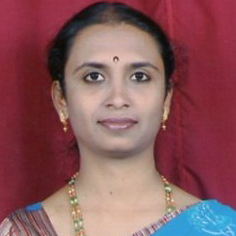Civil Engineering
Introduction
Artificial Intelligence and Machine Learning being game-changing technologies are transforming the world around us. These emerging technologies lie at the heart of Industry 4.0, blending machines and humans and augmenting the capabilities of each to drive transformation across economies and our lives.
Artificial Intelligence (AI) and its subset Machine Learning (ML) are the fuel that drives digitalisation around us today. While AI mimics human intelligence through algorithms deployed in a dynamic computing system, ML uses data and algorithms to keep learning from each interaction, gradually increasing accuracy.
AI & ML tools being increasingly used across different fields such as healthcare, logistics, education, security, transportation, entertainment etc, there are tremendous opportunities for skilled engineers who are trained in these technologies.
About the Department
The department of Artificial Intelligence and Machine Learning was established in the year 2022 with an initial intake of 60 students for the undergraduate program. The department is approved by the AICTE, New Delhi and is affiliated to Sri Siddhartha Academy of Higher Education.

Dr. Channakrishnaraju
PROFESSOR AND HOD
Vision of the Department
To produce technically competent graduates in the field of Artificial Intelligence exhibiting etiquette and amenable for significant contributions to the society
Mission
- M1: To develop technical and professional skills to meet the industrial and societal needs.
- M2: To promote research culture among students enabling continuous learning.
- M3: To inculcate ethical values and good leadership qualities.
PROGRAM OUTCOMES (PO)
Engineering Graduates will be able to:
- PO1: Engineering knowledge: Apply the knowledge of mathematics, science, engineering fundamentals, and an engineering specialization for the solution of complex engineering problems
- PO2: Problem analysis: Identify, formulate, review research literature, and analyse complex engineering problems reaching substantiated conclusions using first principles of mathematics, natural sciences and engineering sciences.
- PO3: Design/development of solutions: Design solutions for complex engineering problems and design system components or processes that meet the specified needs with appropriate consideration for public health and safety, and cultural, societal, and environmental considerations.
- PO4: Conduct investigations of complex problems: Use research-based knowledge and research methods including design of experiments, analysis and interpretation of data, and synthesis of the information to provide valid conclusions.
- PO5: Modern tool usage: Create, select, and apply appropriate techniques, resources, and modern engineering and IT tools, including prediction and modeling to complex engineering activities, with an understanding of the limitations.
- PO6: The engineer and society: Apply reasoning informed by the contextual knowledge to assess Societal, health, safety, legal and cultural issues and the consequent responsibilities relevant to the professional engineering practice.
- PO7: Environment and sustainability: Understand the impact of the professional engineering solutions in societal and environmental contexts, and demonstrate the knowledge of, and need for sustainable development.
- PO8: Ethics: Apply ethical principles and commit to professional ethics and responsibilities and norms of the engineering practice.
- PO9: Individual and team work: Function effectively as an individual, and as a member or leader in diverse teams, and in multidisciplinary settings.
- PO10: Communication: Communicate effectively on complex engineering activities with the engineering community and with the society at large, such as, being able to comprehend and write effective reports and design documentation, make effective presentations, and give and receive clear instructions.
- PO11: Project management and finance: Demonstrate knowledge and understanding of the engineering and management principles and apply these to one’s own work, as a member and leader in a team, to manage projects and in multidisciplinary environments.
- PO12: Life-long learning: Recognize the need for, and have the preparation and ability to engage in independent and life-long learning in the broadest context of technological change.

Dr.Channakrishnaraju
Professor and HODExperience in years: 27

Dr. Manjula.Yerva
Associate ProfessorExperience: 17

Dr. Savitha.C
Associate ProfessorExperience: 11

Haripriya R
Assistant ProfessorExperience: 12
| # | Description | Download |
|---|---|---|
| 1 | Scheme and syllabus AIML II year BE 2023-24 | Download |
Lab coming soon
Achievements
Comming Soon